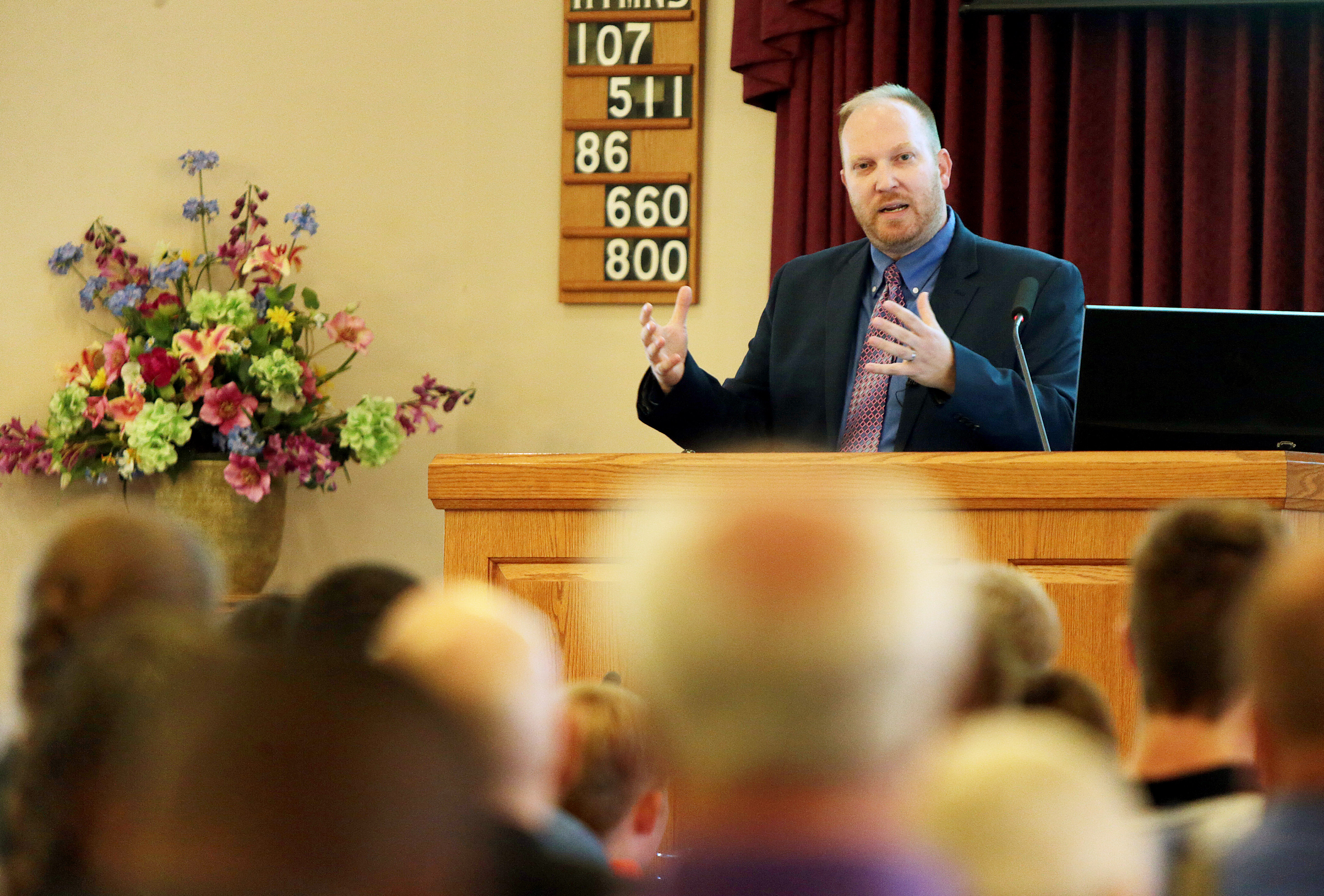TV Evangelist Preachers: A Comprehensive Guide To Their Role, Impact, And Influence
Mar 20 2025
Television evangelism has revolutionized the way religious teachings are shared with the world. TV evangelist preachers have become central figures in modern religious broadcasting, bringing spiritual messages directly into households across the globe. Their ability to connect with audiences through the power of television has transformed religious outreach and communication. In this article, we will explore the role of TV evangelist preachers, their history, influence, and the controversies surrounding them.
For decades, television has been a powerful medium for spreading religious messages. TV evangelist preachers have capitalized on this platform to reach millions of viewers, transcending geographical and cultural boundaries. Their presence on television has not only expanded religious teachings but also sparked discussions about the intersection of media, religion, and societal values.
This article aims to provide a detailed examination of TV evangelist preachers, their significance, and the impact they have on modern society. We will delve into their history, methods of communication, and the challenges they face in today's digital age. Let's explore how these influential figures have shaped religious broadcasting and continue to inspire millions around the world.
Table of Contents
- The History of TV Evangelist Preachers
- Biography and Key Figures in TV Evangelism
- Methods of Communication Used by TV Evangelists
- The Influence of TV Evangelist Preachers on Society
- Controversies Surrounding TV Evangelists
- Statistics and Growth of TV Evangelism
- Benefits of TV Evangelism for Religious Communities
- Criticisms and Challenges Faced by TV Evangelists
- The Future of TV Evangelism in the Digital Age
- Conclusion: The Lasting Impact of TV Evangelist Preachers
The History of TV Evangelist Preachers
The emergence of TV evangelist preachers dates back to the mid-20th century when television became a popular medium for mass communication. Religious leaders recognized the potential of television to reach larger audiences, and this led to the rise of religious broadcasting. The first TV evangelist preachers appeared in the 1950s, utilizing this new platform to spread their messages.
One of the earliest and most influential TV evangelist preachers was Oral Roberts, who began his television ministry in the 1950s. His charismatic style and innovative use of media set the stage for future generations of TV evangelists. As television technology advanced, so did the reach and impact of these preachers, allowing them to connect with audiences on a global scale.
Key Milestones in the Evolution of TV Evangelism
- 1950s: The birth of religious television programming with pioneers like Oral Roberts and Billy Graham.
- 1970s: The rise of cable television expanded the reach of TV evangelism, enabling preachers to broadcast to a wider audience.
- 1980s: The establishment of dedicated religious networks, such as the Trinity Broadcasting Network (TBN), further solidified the presence of TV evangelists in the media landscape.
Biography and Key Figures in TV Evangelism
Several key figures have played pivotal roles in shaping the world of TV evangelism. These preachers have not only influenced religious practices but also left a lasting impact on society. Below is a brief biography of some of the most notable TV evangelist preachers:
Biographical Data of Key TV Evangelists
| Name | Date of Birth | Place of Birth | Notable Achievements |
|---|---|---|---|
| Oral Roberts | January 24, 1918 | Pontotoc, Mississippi | Pioneered the use of television in religious broadcasting. |
| Billy Graham | November 7, 1918 | Charlotte, North Carolina | Became a global evangelist, reaching millions through television and live crusades. |
| Joyce Meyer | June 4, 1943 | Saint Louis, Missouri | Known for her motivational teachings and best-selling books. |
Methods of Communication Used by TV Evangelists
TV evangelist preachers employ a variety of methods to communicate their messages effectively. These methods include live broadcasts, pre-recorded sermons, and interactive media platforms. The use of modern technology has enabled these preachers to reach a diverse audience, adapting their strategies to meet the needs of different demographics.
Technological Tools Used in TV Evangelism
- High-definition cameras and broadcasting equipment to enhance visual quality.
- Social media platforms to engage with younger audiences and promote their ministries.
- Streaming services to provide on-demand access to sermons and religious content.
The Influence of TV Evangelist Preachers on Society
TV evangelist preachers have had a profound impact on society, influencing religious practices, cultural norms, and societal values. Their messages often address contemporary issues, offering guidance and support to their followers. This influence extends beyond religious boundaries, shaping public opinion and encouraging social change.
According to a study published in the Journal of Media and Religion, TV evangelists have played a significant role in increasing religious participation and engagement among viewers. Their ability to connect with audiences on a personal level has made them trusted voices in the religious community.
Controversies Surrounding TV Evangelists
Despite their widespread influence, TV evangelist preachers have faced numerous controversies throughout their history. Critics have raised concerns about the commercialization of religion, questioning the financial practices of some preachers and their use of media for personal gain. These controversies have sparked debates about the ethics of religious broadcasting and the responsibilities of TV evangelists.
Common Controversies in TV Evangelism
- Excessive fundraising and financial mismanagement.
- Claims of exploiting vulnerable audiences for financial gain.
- Disagreements over theological interpretations and religious doctrines.
Statistics and Growth of TV Evangelism
The growth of TV evangelism has been remarkable, with millions of viewers tuning in to religious broadcasts each year. According to a report by the Pew Research Center, approximately 30% of Americans regularly watch religious television programs. This statistic highlights the continued relevance and popularity of TV evangelism in modern society.
Furthermore, the advent of digital platforms has expanded the reach of TV evangelists, allowing them to connect with audiences in new and innovative ways. Streaming services and social media have become essential tools for religious broadcasting, ensuring that the messages of TV evangelist preachers are accessible to a global audience.
Benefits of TV Evangelism for Religious Communities
TV evangelism has brought numerous benefits to religious communities, providing access to spiritual teachings and fostering a sense of community among followers. The ability to broadcast sermons and religious content has enabled religious organizations to reach individuals who may not have access to traditional places of worship.
Additionally, TV evangelism has facilitated the spread of religious education, offering viewers the opportunity to learn about different faiths and practices. This has contributed to greater religious understanding and tolerance, promoting harmony and cooperation among diverse communities.
Criticisms and Challenges Faced by TV Evangelists
While TV evangelist preachers have achieved significant success, they also face numerous challenges and criticisms. Critics argue that the commercialization of religion undermines its spiritual integrity, while others question the authenticity of certain preachers and their messages.
Moreover, the rise of digital media has introduced new challenges for TV evangelists, requiring them to adapt to changing technological landscapes and audience preferences. Balancing traditional methods of communication with modern innovations remains a key challenge for these preachers as they strive to maintain their relevance in an ever-evolving media environment.
The Future of TV Evangelism in the Digital Age
As technology continues to evolve, the future of TV evangelism looks promising. The integration of digital platforms and social media has opened new avenues for religious broadcasting, enabling TV evangelist preachers to reach a wider and more diverse audience. This shift towards digital media presents both opportunities and challenges for religious leaders, requiring them to embrace innovation while staying true to their core values.
Emerging technologies such as virtual reality and augmented reality could further enhance the experience of religious broadcasting, offering immersive experiences for viewers. These advancements have the potential to revolutionize the way TV evangelists connect with their audiences, creating new possibilities for religious outreach and engagement.
Conclusion: The Lasting Impact of TV Evangelist Preachers
TV evangelist preachers have played a vital role in shaping modern religious broadcasting, bringing spiritual messages to millions of viewers worldwide. Their influence extends beyond religious boundaries, impacting societal values and cultural norms. Despite facing numerous challenges and controversies, these preachers continue to inspire and guide their followers, adapting to the changing media landscape to ensure their messages reach a global audience.
As we look to the future, it is clear that TV evangelism will remain a significant force in religious communication. The integration of digital platforms and emerging technologies will further enhance the reach and impact of TV evangelist preachers, ensuring their continued relevance in the years to come.
We invite you to share your thoughts and experiences with TV evangelism in the comments below. Your feedback is valuable in helping us understand the impact of these influential figures on modern society. Additionally, feel free to explore other articles on our website for more insights into the world of religion and media.


